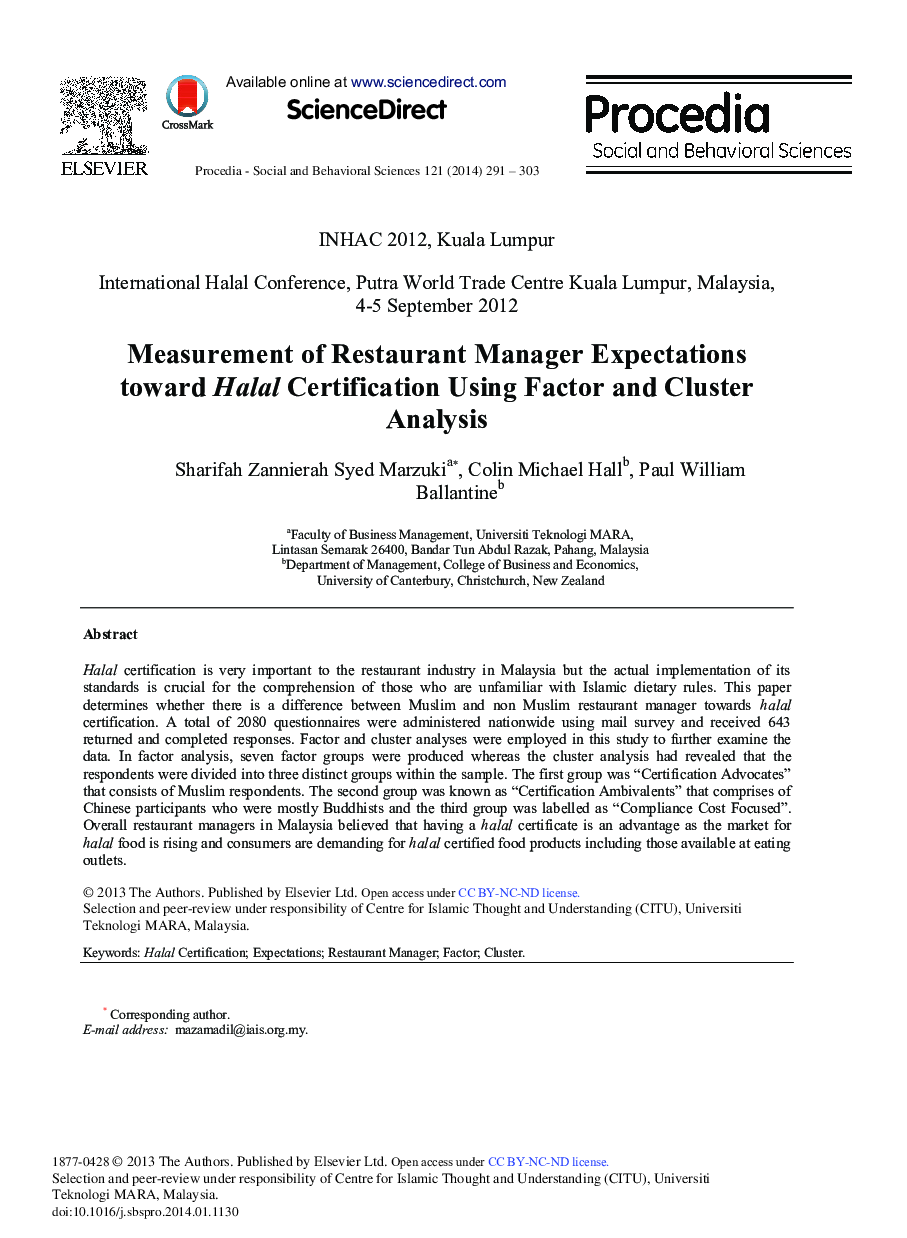| Article ID | Journal | Published Year | Pages | File Type |
|---|---|---|---|---|
| 1116488 | Procedia - Social and Behavioral Sciences | 2014 | 13 Pages |
Halal certification is very important to the restaurant industry in Malaysia but the actual implementation of its standards is crucial for the comprehension of those who are unfamiliar with Islamic dietary rules. This paper determines whether there is a difference between Muslim and non Muslim restaurant manager towards halal certification. A total of 2080 questionnaires were administered nationwide using mail survey and received 643 returned and completed responses. Factor and cluster analyses were employed in this study to further examine the data. In factor analysis, seven factor groups were produced whereas the cluster analysis had revealed that the respondents were divided into three distinct groups within the sample. The first group was “Certification Advocates” that consists of Muslim respondents. The second group was known as “Certification Ambivalents” that comprises of Chinese participants who were mostly Buddhists and the third group was labelled as “Compliance Cost Focused”. Overall restaurant managers in Malaysia believed that having a halal certificate is an advantage as the market for halal food is rising and consumers are demanding for halal certified food products including those available at eating outlets.
